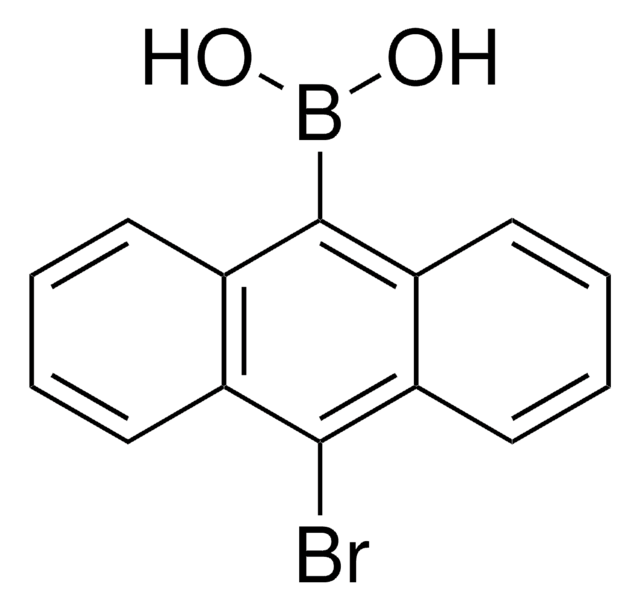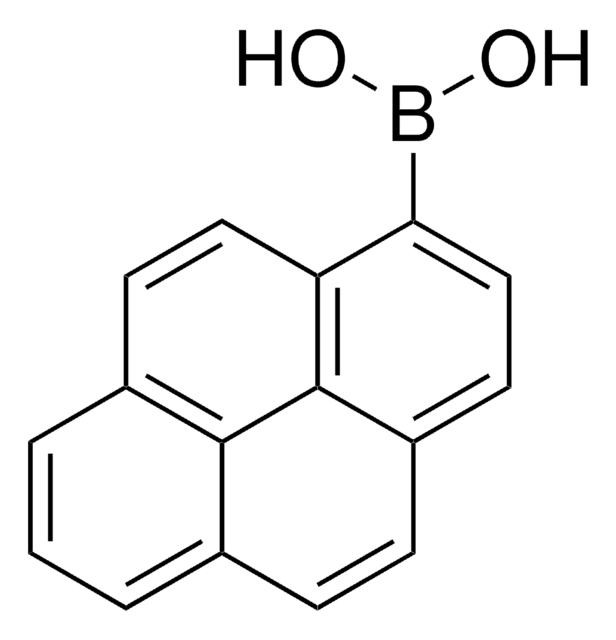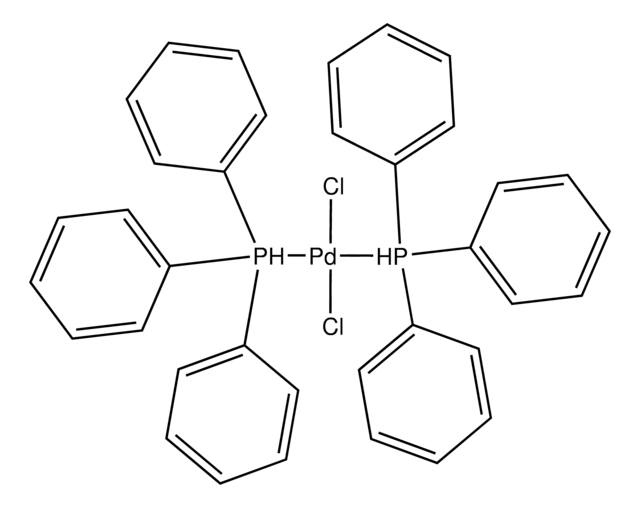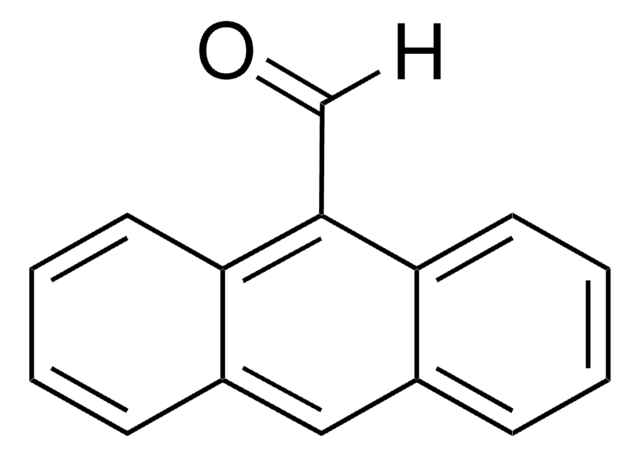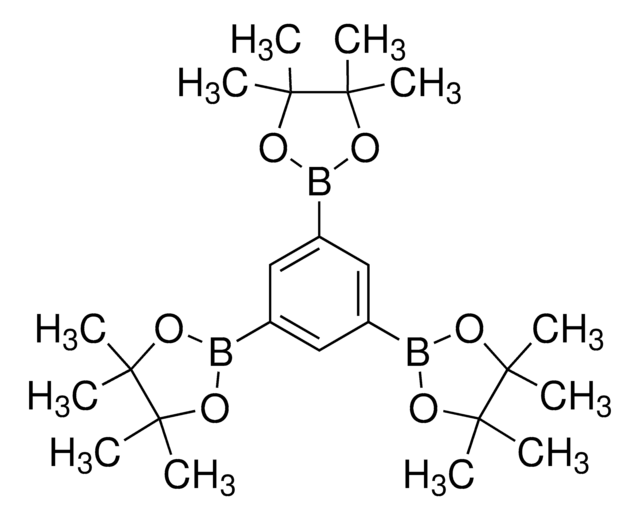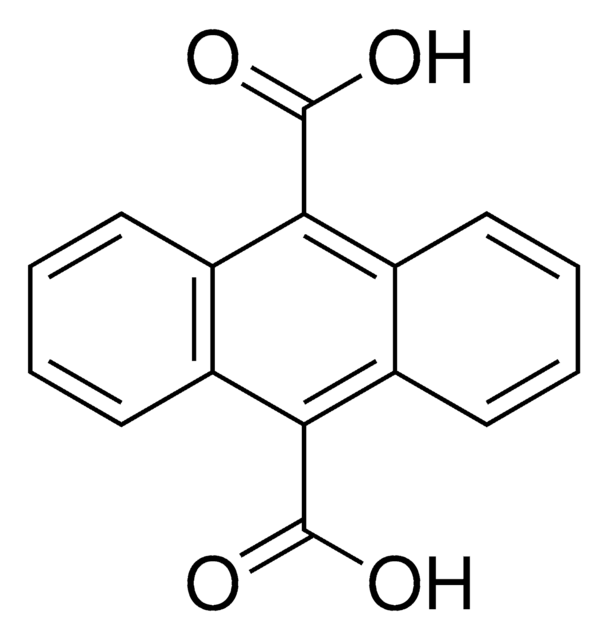724750
9,10-Anthracenediboronic acid bis(pinacol) ester
97%
Synonym(s):
9,10-Bis(4,4,5,5-tetramethyl[1.3.2]dioxaborolan-2-yl)anthracene
About This Item
Recommended Products
Assay
97%
form
solid
mp
>300 °C
SMILES string
CC1(C)OB(OC1(C)C)c2c3ccccc3c(B4OC(C)(C)C(C)(C)O4)c5ccccc25
InChI
1S/C26H32B2O4/c1-23(2)24(3,4)30-27(29-23)21-17-13-9-11-15-19(17)22(20-16-12-10-14-18(20)21)28-31-25(5,6)26(7,8)32-28/h9-16H,1-8H3
InChI key
ZLXSWNVYGSZXOP-UHFFFAOYSA-N
General description
Application
Storage Class Code
11 - Combustible Solids
WGK
WGK 3
Flash Point(F)
Not applicable
Flash Point(C)
Not applicable
Choose from one of the most recent versions:
Certificates of Analysis (COA)
Don't see the Right Version?
If you require a particular version, you can look up a specific certificate by the Lot or Batch number.
Already Own This Product?
Find documentation for the products that you have recently purchased in the Document Library.
Customers Also Viewed
Articles
Organic electronics promise renewable energy solutions surpassing silicon-based tech.
Our team of scientists has experience in all areas of research including Life Science, Material Science, Chemical Synthesis, Chromatography, Analytical and many others.
Contact Technical Service
